| Title | Methods for automated delineation and assessment of EMG responses evoked by peripheral nerve stimulation in diagnostic and closed-loop therapeutic applications. |
| Publication Type | Journal Article |
| Year of Publication | 2023 |
| Authors | McKinnon, ML, N Hill, J, Carp, JS, Dellenbach, B, Thompson, AK |
| Journal | J Neural Eng |
| Volume | 20 |
| Issue | 4 |
| Date Published | 2023 Jul 21 |
| ISSN | 1741-2552 |
| Keywords | Electric Stimulation, Electromyography, H-Reflex, Humans, Muscle, Skeletal, Peripheral Nerves, Retrospective Studies |
| Abstract | Surface electromyography measurements of the Hoffmann (H-) reflex are essential in a wide range of neuroscientific and clinical applications. One promising emerging therapeutic application is H-reflex operant conditioning, whereby a person is trained to modulate the H-reflex, with generalized beneficial effects on sensorimotor function in chronic neuromuscular disorders. Both traditional diagnostic and novel realtime therapeutic applications rely on accurate definitions of the H-reflex and M-wave temporal bounds, which currently depend on expert case-by-case judgment. The current study automates such judgments.Our novel wavelet-based algorithm automatically determines temporal extent and amplitude of the human soleus H-reflex and M-wave. In each of 20 participants, the algorithm was trained on data from a preliminary 3 or 4 min recruitment-curve measurement. Output was evaluated on parametric fits to subsequent sessions' recruitment curves (92 curves across all participants) and on the conditioning protocol's subsequent baseline trials (∼1200 per participant) performed near. Results were compared against the original temporal bounds estimated at the time, and against retrospective estimates made by an expert 6 years later.Automatic bounds agreed well with manual estimates: 95% lay within ±2.5 ms. The resulting H-reflex magnitude estimates showed excellent agreement (97.5% average across participants) between automatic and retrospective bounds regarding which trials would be considered successful for operant conditioning. Recruitment-curve parameters also agreed well between automatic and manual methods: 95% of the automatic estimates of the current required to elicitfell within±1.4%of the retrospective estimate; for the 'threshold' current that produced an M-wave 10% of maximum, this value was±3.5%.Such dependable automation of M-wave and H-reflex definition should make both established and emerging H-reflex protocols considerably less vulnerable to inter-personnel variability and human error, increasing translational potential. |
| DOI | 10.1088/1741-2552/ace6fb |
| Alternate Journal | J Neural Eng |
| PubMed ID | 37437593 |
| PubMed Central ID | PMC10445400 |
| Grant List | P2C HD086844 / HD / NICHD NIH HHS / United States P41 EB018783 / EB / NIBIB NIH HHS / United States R01 NS114279 / NS / NINDS NIH HHS / United States U44 NS114420 / NS / NINDS NIH HHS / United States |

